Navigation
Install the app
How to install the app on iOS
Follow along with the video below to see how to install our site as a web app on your home screen.

Note: This feature currently requires accessing the site using the built-in Safari browser.
More options
You are using an out of date browser. It may not display this or other websites correctly.
You should upgrade or use an alternative browser.
You should upgrade or use an alternative browser.
Breaking The Limitations of Photography
- Thread starter Josh100LuBu
- Start date
- Status
- Not open for further replies.
- Joined
- Jul 8, 2005
- Messages
- 45,747
- Reaction score
- 14,806
- Location
- Victoria, BC
- Website
- www.johnsphotography.ca
- Can others edit my Photos
- Photos OK to edit
Possibly. His gear? Sure. His ideas? Without a doubt, but.. do we actually know how much creative input Dad had?Ummm... You are not a photographer. Your dad shoots all the photographs for you.
I do not agree with that contention, at all, in any way. This has been dealt with before, many times. His camera, his gear, his ideas, HIS photos. Same goes for husband and wife teams who have joint copyright; same with photographers who shoot TIMED, or intervalometer, or trigger/trap-focus images of wildlife and natural world events; coyote appears at a bait in the middle of the night, a trap-focused Canon starts shooting images while the photographer is at home or in camp, asleep; who took the photos and has copyright? The coyote? Uhhhh, no.
tecboy
No longer a newbie, moving up!
- Joined
- Feb 17, 2012
- Messages
- 2,977
- Reaction score
- 358
- Can others edit my Photos
- Photos OK to edit
He and his parents have shared copyright. But he doesn't deserve credit as a photographer, and he was asking for feedback.Ummm... You are not a photographer. Your dad shoots all the photographs for you.
I do not agree with that contention, at all, in any way. This has been dealt with before, many times. His camera, his gear, his ideas, HIS photos. Same goes for husband and wife teams who have joint copyright; same with photographers who shoot TIMED, or intervalometer, or trigger/trap-focus images of wildlife and natural world events; coyote appears at a bait in the middle of the night, a trap-focused Canon starts shooting images while the photographer is at home or in camp, asleep; who took the photos and has copyright? The coyote? Uhhhh, no.
- Joined
- Jun 9, 2013
- Messages
- 20,580
- Reaction score
- 12,709
- Website
- moderndinosaur.wordpress.com
- Can others edit my Photos
- Photos NOT OK to edit
He and his parents have shared copyright. But he doesn't deserve credit as a photographer, and he was asking for feedback.
No, the person who presses the button has the copyright to that photo. The stylist does not share in the copyright, nor does the model or art director or makeup artist. The only time someone else gets the rights to the photograph is by contract. And lest you forget, just look at Snerd's avatar to remind yourself that if a monkey is that shutter-pusher, that means no one gets copyright because an animal can't own a copyright. They don't transfer the copyright to the human whose gear or idea set up the shot.
- Joined
- Apr 9, 2009
- Messages
- 41,401
- Reaction score
- 5,706
- Location
- Iowa
- Website
- kharrodphotography.blogspot.com
- Can others edit my Photos
- Photos OK to edit
Here is US copyright law.
Copyright Law of the United States U.S. Copyright Office
Be wary of legal advice given in an online photography forum.
Even lawyers trained in the sub-specialties of US copyright and publication law give bad advice, which is why there are hundreds of copyright cases pending in the federal courts right now.
Note - Ideas cannot be copyrighted, but copyright may protect the way ideas are expressed.
Copyright Law of the United States U.S. Copyright Office
Be wary of legal advice given in an online photography forum.
Even lawyers trained in the sub-specialties of US copyright and publication law give bad advice, which is why there are hundreds of copyright cases pending in the federal courts right now.
Note - Ideas cannot be copyrighted, but copyright may protect the way ideas are expressed.
tecboy
No longer a newbie, moving up!
- Joined
- Feb 17, 2012
- Messages
- 2,977
- Reaction score
- 358
- Can others edit my Photos
- Photos OK to edit
He and his parents have shared copyright. But he doesn't deserve credit as a photographer, and he was asking for feedback.
No, the person who presses the button has the copyright to that photo. The stylist does not share in the copyright, nor does the model or art director or makeup artist. The only time someone else gets the rights to the photograph is by contract. And lest you forget, just look at Snerd's avatar to remind yourself that if a monkey is that shutter-pusher, that means no one gets copyright because an animal can't own a copyright. They don't transfer the copyright to the human whose gear or idea set up the shot.
Got it. I didn't mention about the copyright in the first place.

- Joined
- Apr 9, 2009
- Messages
- 41,401
- Reaction score
- 5,706
- Location
- Iowa
- Website
- kharrodphotography.blogspot.com
- Can others edit my Photos
- Photos OK to edit
Where does it say in US copyright law the he and his parents have shared copyright?He and his parents have shared copyright. But he doesn't deserve credit as a photographer, and he was asking for feedback.Ummm... You are not a photographer. Your dad shoots all the photographs for you.
I do not agree with that contention, at all, in any way. This has been dealt with before, many times. His camera, his gear, his ideas, HIS photos. Same goes for husband and wife teams who have joint copyright; same with photographers who shoot TIMED, or intervalometer, or trigger/trap-focus images of wildlife and natural world events; coyote appears at a bait in the middle of the night, a trap-focused Canon starts shooting images while the photographer is at home or in camp, asleep; who took the photos and has copyright? The coyote? Uhhhh, no.
I am always wanting to learn more about US copyright law.
Derrel
Mr. Rain Cloud
- Joined
- Jul 23, 2009
- Messages
- 48,225
- Reaction score
- 18,941
- Location
- USA
- Website
- www.pbase.com
- Can others edit my Photos
- Photos OK to edit
He and his parents have shared copyright. But he doesn't deserve credit as a photographer, and he was asking for feedback.
No, the person who presses the button has the copyright to that photo. The stylist does not share in the copyright, nor does the model or art director or makeup artist. The only time someone else gets the rights to the photograph is by contract. And lest you forget, just look at Snerd's avatar to remind yourself that if a monkey is that shutter-pusher, that means no one gets copyright because an animal can't own a copyright. They don't transfer the copyright to the human whose gear or idea set up the shot.
Uh no, sorry, I think you're flat-out wrong on the idea that, "No one gets copyright." But that is what the thieves who have been stealing the images have been using as their argument to rationalize their theft. Snerd's avatar image is in fact, one that ought to be removed here, and frankly, I am surprised the people running this site have let this slide for so long... the people running TPF have been almost INSTANTANEOUS in vigorously kill-filing misappropriated images for years now, and yet...that avatar has been allowed here on hundreds of posts: and we know that snerd himself DOES NOT OWN or have any claim to copyright on that monkey image...none.
Seems like some consistency might be in order. And the implication that his father has a lot of creative contribution...the guy that cast that aspersion ought to know better than to make a cheap remark like that...that was really uncalled for...
tecboy
No longer a newbie, moving up!
- Joined
- Feb 17, 2012
- Messages
- 2,977
- Reaction score
- 358
- Can others edit my Photos
- Photos OK to edit
Where does it say in US copyright law the he and his parents have shared copyright?He and his parents have shared copyright. But he doesn't deserve credit as a photographer, and he was asking for feedback.Ummm... You are not a photographer. Your dad shoots all the photographs for you.
I do not agree with that contention, at all, in any way. This has been dealt with before, many times. His camera, his gear, his ideas, HIS photos. Same goes for husband and wife teams who have joint copyright; same with photographers who shoot TIMED, or intervalometer, or trigger/trap-focus images of wildlife and natural world events; coyote appears at a bait in the middle of the night, a trap-focused Canon starts shooting images while the photographer is at home or in camp, asleep; who took the photos and has copyright? The coyote? Uhhhh, no.
I am always wanting to learn more about US copyright law.
Ask Derrel, he started it.

- Joined
- Jun 9, 2013
- Messages
- 20,580
- Reaction score
- 12,709
- Website
- moderndinosaur.wordpress.com
- Can others edit my Photos
- Photos NOT OK to edit
- Joined
- Jun 9, 2013
- Messages
- 20,580
- Reaction score
- 12,709
- Website
- moderndinosaur.wordpress.com
- Can others edit my Photos
- Photos NOT OK to edit
Uh no, sorry, I think you're flat-out wrong on the idea that, "No one gets copyright." But that is what the thieves who have been stealing the images have been using as their argument to rationalize their theft. Snerd's avatar image is in fact, one that ought to be removed here, and frankly, I am surprised the people running this site have let this slide for so long... the people running TPF have been almost INSTANTANEOUS in vigorously kill-filing misappropriated images for years now, and yet...that avatar has been allowed here on hundreds of posts: and we know that snerd himself DOES NOT OWN or have any claim to copyright on that monkey image...none.
Seems like some consistency might be in order. And the implication that his father has a lot of creative contribution...the guy that cast that aspersion ought to know better than to make a cheap remark like that...that was really uncalled for...
I think John only suggested that we do not know the extent of the father's involvement - no one suggested that the father was running the show.
And there's a difference between artistic credit and legal credit. It's simple - if the OP wants there to be no question of copyright ownership, he needs to use the self-timer or a remote shutter release.
pgriz
Been spending a lot of time on here!
- Joined
- Jul 30, 2010
- Messages
- 6,734
- Reaction score
- 3,221
- Location
- Canada
- Can others edit my Photos
- Photos OK to edit
I think we need the monkey's perspective on this. How good is the internet connection to the macaques? If they can operate a camera to do a selfie, surely working on Skype can't be that difficult.
- Joined
- Jun 9, 2013
- Messages
- 20,580
- Reaction score
- 12,709
- Website
- moderndinosaur.wordpress.com
- Can others edit my Photos
- Photos NOT OK to edit
From Chapter 300 of the U.S. Copyright Office Compendium:
"306 The Human Authorship Requirement
The U.S. Copyright Office will register an original work of authorship, provided that the
work was created by a human being.
The copyright law only protects “the fruits of intellectual labor” that “are founded in the
creative powers of the mind.” Trade-Mark Cases, 100 U.S. 82, 94 (1879). Because
copyright law is limited to “original intellectual conceptions of the author,” the Office
will refuse to register a claim if it determines that a human being did not create the
work. Burrow-Giles Lithographic Co. v. Sarony, 111 U.S. 53, 58 (1884). For representative
examples of works that do not satisfy this requirement, see Section 313.2 below."
"313.2 Works That Lack Human Authorship
As discussed in Section 306, the Copyright Act protects “original works
of authorship.” 17 U.S.C. § 102(a) (emphasis added). To qualify as a work of “authorship”
a work must be created by a human being. See Burrow-Giles Lithographic Co., 111 U.S. at
58. Works that do not satisfy this requirement are not copyrightable.
The Office will not register works produced by nature, animals, or plants. Likewise, the
Office cannot register a work purportedly created by divine or supernatural beings,
although the Office may register a work where the application or the deposit copy(ies)
state that the work was inspired by a divine spirit.
Examples:
• A photograph taken by a monkey.
• A mural painted by an elephant.
• A claim based on the appearance of actual animal skin.
• A claim based on driftwood that has been shaped and smoothed by
the ocean.
• A claim based on cut marks, defects, and other qualities found in
natural stone.
• An application for a song naming the Holy Spirit as the author of the
work.
Similarly, the Office will not register works produced by a machine or mere mechanical
process that operates randomly or automatically without any creative input or
intervention from a human author.
Examples:
• Reducing or enlarging the size of a preexisting work of authorship.
• Making changes to a preexisting work of authorship that are
dictated by manufacturing or materials requirements.
• Converting a work from analog to digital format, such as
transferring a motion picture from VHS to DVD.
• Declicking or reducing the noise in a preexisting sound recording or
converting a sound recording from monaural to stereo sound.
• Transposing a song from B major to C major.
• Medical imaging produced by x-rays, ultrasounds, magnetic
resonance imaging, or other diagnostic equipment.
• A claim based on a mechanical weaving process that randomly
produces irregular shapes in the fabric without any discernible
pattern"
"306 The Human Authorship Requirement
The U.S. Copyright Office will register an original work of authorship, provided that the
work was created by a human being.
The copyright law only protects “the fruits of intellectual labor” that “are founded in the
creative powers of the mind.” Trade-Mark Cases, 100 U.S. 82, 94 (1879). Because
copyright law is limited to “original intellectual conceptions of the author,” the Office
will refuse to register a claim if it determines that a human being did not create the
work. Burrow-Giles Lithographic Co. v. Sarony, 111 U.S. 53, 58 (1884). For representative
examples of works that do not satisfy this requirement, see Section 313.2 below."
"313.2 Works That Lack Human Authorship
As discussed in Section 306, the Copyright Act protects “original works
of authorship.” 17 U.S.C. § 102(a) (emphasis added). To qualify as a work of “authorship”
a work must be created by a human being. See Burrow-Giles Lithographic Co., 111 U.S. at
58. Works that do not satisfy this requirement are not copyrightable.
The Office will not register works produced by nature, animals, or plants. Likewise, the
Office cannot register a work purportedly created by divine or supernatural beings,
although the Office may register a work where the application or the deposit copy(ies)
state that the work was inspired by a divine spirit.
Examples:
• A photograph taken by a monkey.
• A mural painted by an elephant.
• A claim based on the appearance of actual animal skin.
• A claim based on driftwood that has been shaped and smoothed by
the ocean.
• A claim based on cut marks, defects, and other qualities found in
natural stone.
• An application for a song naming the Holy Spirit as the author of the
work.
Similarly, the Office will not register works produced by a machine or mere mechanical
process that operates randomly or automatically without any creative input or
intervention from a human author.
Examples:
• Reducing or enlarging the size of a preexisting work of authorship.
• Making changes to a preexisting work of authorship that are
dictated by manufacturing or materials requirements.
• Converting a work from analog to digital format, such as
transferring a motion picture from VHS to DVD.
• Declicking or reducing the noise in a preexisting sound recording or
converting a sound recording from monaural to stereo sound.
• Transposing a song from B major to C major.
• Medical imaging produced by x-rays, ultrasounds, magnetic
resonance imaging, or other diagnostic equipment.
• A claim based on a mechanical weaving process that randomly
produces irregular shapes in the fabric without any discernible
pattern"
- Status
- Not open for further replies.
Similar threads
- Replies
- 0
- Views
- 208
- Replies
- 33
- Views
- 4K
- Replies
- 66
- Views
- 5K

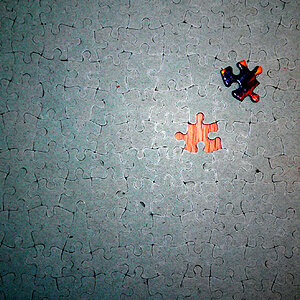


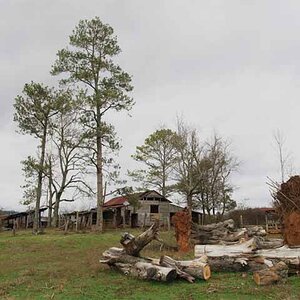
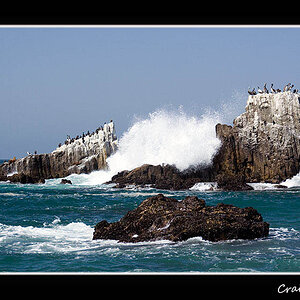
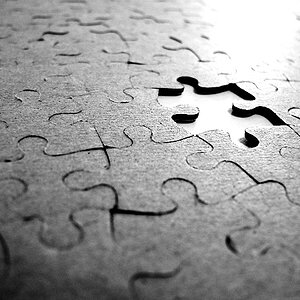
![[No title]](/data/xfmg/thumbnail/39/39447-6e7679723d775935851f055bae9712ba.jpg?1619739036)
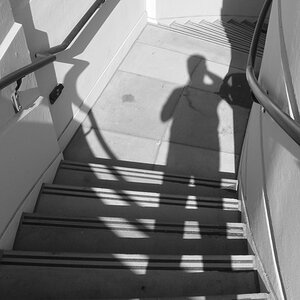
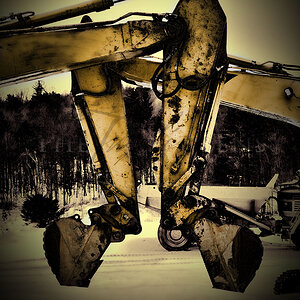
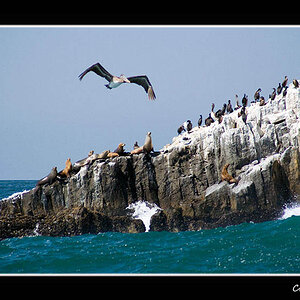
![[No title]](/data/xfmg/thumbnail/39/39444-02925f6d2859f4fda0e89f2001bfc9cd.jpg?1619739034)
